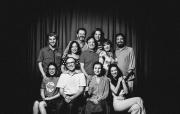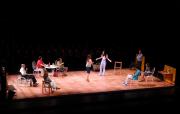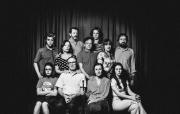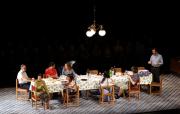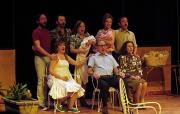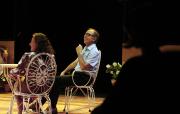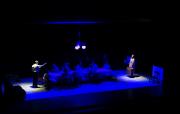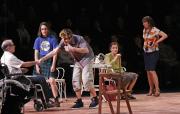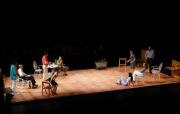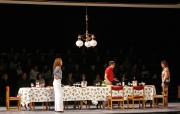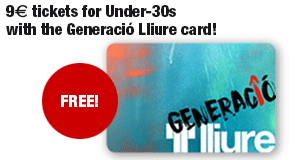Vilafranca
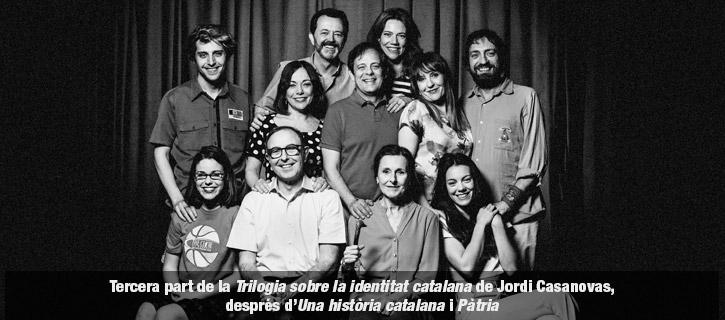
cast Marta Angelat / David Bagés / Manel Barceló / Lluïsa Castell / Georgina Latre / Vicky Luengo / Àurea Márquez / Marc Rius / Manuel Veiga / David Vert / Anna Ycobalzeta
setting Sebastià Brosa / costumes Albert Pascual / lighting David Bofarull / sound Damien Bazin / soundtrack Anna Roig and L’ombra de ton chien
director assistant Israel Solà / technical director David Pascual / management director Carles Manrique (Velvet Events) / distribution Elena Blanco (Magnetica Management)
co-produced by Els Teatres Amics: Atrium de Viladecans, Kursaal de Manresa, L'Atlàntida de Vic, Teatre Auditori de Granollers and Teatre-Auditori Sant Cugat
with the support of the Ajuntament de Vilafranca del Penedès and 2015 Vilafranca Capital Cultural Catalana
with the collaboration of the Generalitat de Catalunya - Departament de Cultura and the Diputació de Barcelona
thanks to Carme Pallerola & family, Josep “Jou” Cabré and Pere Almirall (President and Cap de Colla Castellers de Vilafranca), Ball de Panderetes de Vilafranca, Ramon Marrugat, Toni Puntí, Nau Ivanow and Enoturisme del Penedès.
show in Catalan subtitled in Spanish and English on Saturday at 21:00 from 11/14
length 2h. 10' no interval
hand programme in Braille language avalaible at the box office
11/20 performance accessible with subtitles for hearing impairment people and audio description for visually impaired people
11/13 debate with the company after the show
performance recommended by the Servei Educatiu del Teatre Lliure
follow #vilafranca on twitter
| from Wednesday to Friday | 20:30 |
| Saturday | 17:30 and 21:00 |
| Sunday | 18:00 |
| tariff a | |
| general ticket | 29€ |
|
advanced sales (before the premiere) |
26€ |
|
Wednesday and Saturday afternoon (the audience days) |
22€ |
|
NEW! Subscriber’s Flat Rate |
20€ |
|
with discount* (except on the audience days) |
24,50€ |
|
NEW! Carnet Jove and under 25s tariff top row (on certain performances) |
15€ |
*15% discount with the card senior citizens, unemployed, disabled, large families and single parent families, TNC and Mercat de les Flors subscribers, TR3SC, local regional libraries and theatres. To the La Vanguardia subscribers, the discount is only avalaible at the box office.
-
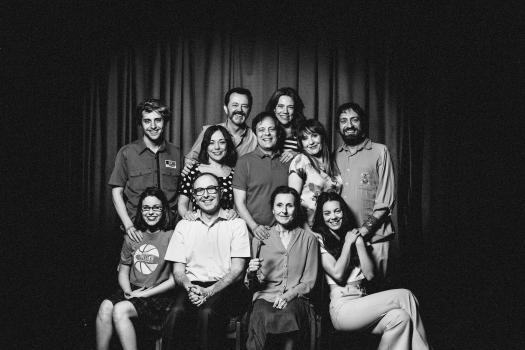
Vilafranca (un dinar de festa major)
© Marc Bordons
-
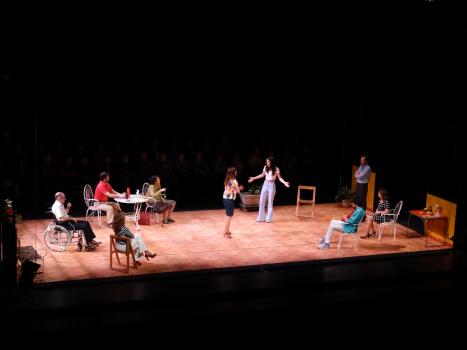
Vilafranca (un dinar de festa major)
© Àngel Oliveres
-
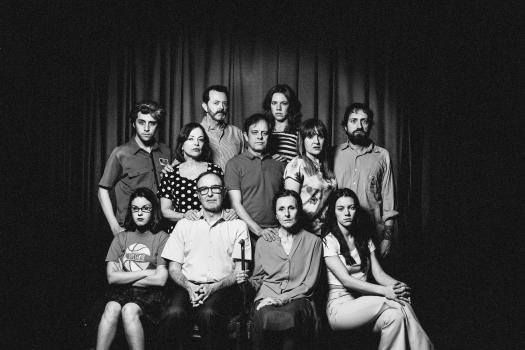
Vilafranca (un dinar de festa major)
© Marc Bordons
-
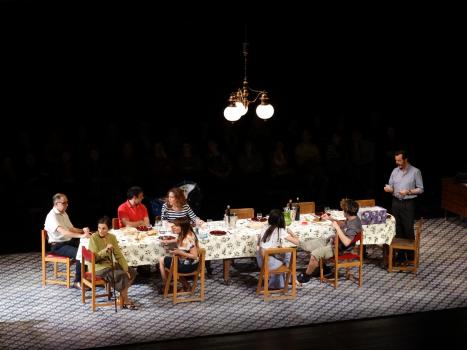
Vilafranca (un dinar de festa major)
© Àngel Oliveres
-
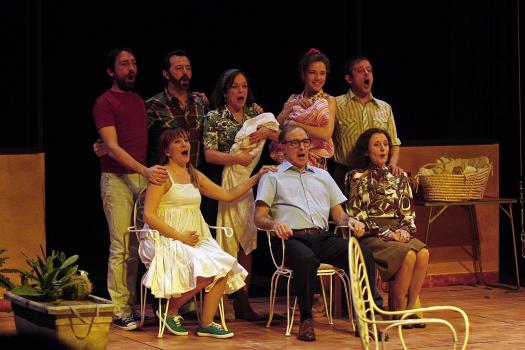
Vilafranca (un dinar de festa major)
© Albert Alemany
-
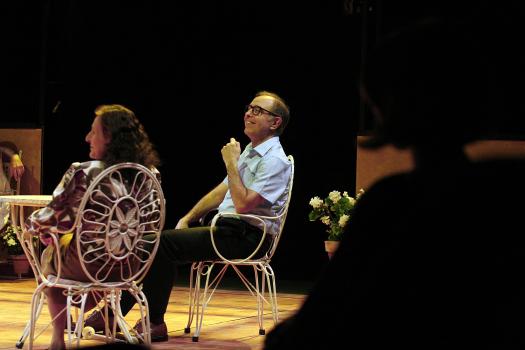
Vilafranca (un dinar de festa major)
© Albert Alemany
-
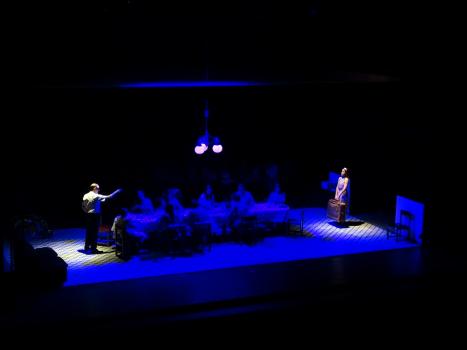
Vilafranca (un dinar de festa major)
© Àngel Oliveres
-
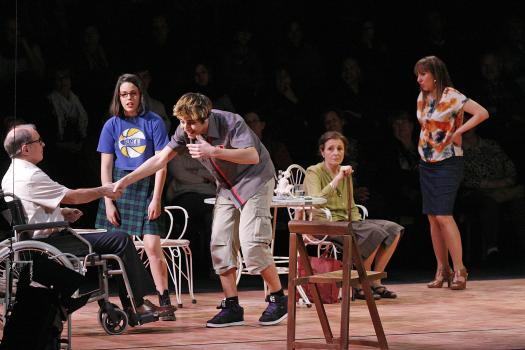
Vilafranca (un dinar de festa major)
© Albert Alemany
-
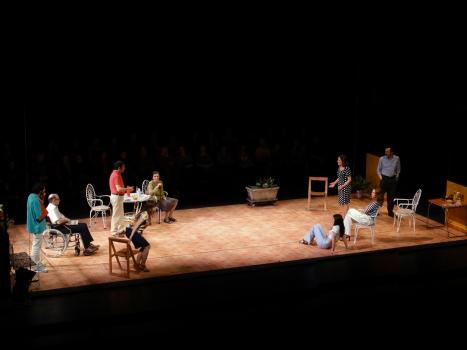
Vilafranca (un dinar de festa major)
© Àngel Oliveres
-
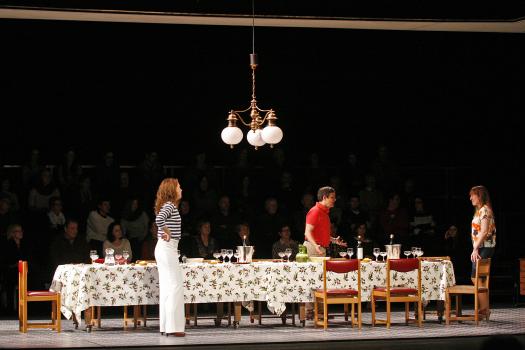
Vilafranca (un dinar de festa major)
© Albert Alemany
The third part of the Trilogia sobre la identitat catalana [Catalan identity trilogy] by Jordi Casanovas, after Una història catalana [A Catalan history] and Pàtria [Homeland]. A journey through our collective characteristics, this time focusing on the family. What we are and we will be?
30 August 1999. It's St. Felix's Day. Cristina has invited the whole family for lunch. Her parents and her sister live in Moja. Her brother lives in Vilanova. They all meet up, as they have always done for the Vilafranca festival, with their partners and children. But the patriarch's illness is getting worse and soon decisions will have to be taken. This might be their last festival meal together. Taking decisions may involve making big sacrifices. Some of the secrets and thoughts that have never been disclosed may be revealed today, between the starter and the main course. Today everything ends, and today perhaps everything starts. In Vilafranca.
All sad experiences become less sad when they are turned into fiction. That's why I've wanted to put this story on stage for years. Arguments, challenges and silences. Sibling enmity. Spite and resentment. Squabbles over four miserable pieces of a vineyard that end in a way we would not like them to.
A unique story and a common story. Everyone has experienced it in their own family. Everyone has heard of similar cases. Everyone could tell a lot of stories and would become emotional remembering them. The family is our first society. And perhaps by watching how a Catalan family moves, thinks and feels, we can find out how an entire country truly moves, thinks and feels. Now, more than ever, I need to ask myself questions about our personal, family and collective identity. And I'm sure that it's not simply my own personal desire. Only theatre audiences know that we can talk to strangers without speaking a single word. So let's let the theatre do its job. Silently, and almost without being aware of it, we begin to talk to the woman in the third row, the boy in the seventh row or that man in the front row of the theatre.
Jordi Casanovas




